AT the close of 2015 we predicted camel milk would become the biggest health food trend in the new year, knocking kale off its clean eating throne and kicking cow milk in the udder. But no, we’ve yet to swap cow for camel. Let’s face it, we’re only just getting used to soy lattes and almond milk on our Cheerios.
Still, in 2016 our healthy eating halos shone brightly. We continued a passionate, near-fanatical love affair with avocados, covered our food in coconut oil, and purchased spiralizers so that we could pretend ‘courgetti’ tasted better than actual spaghetti. Oh and we finally learnt how to pronounce quinoa (keen-wa… KEEEN-WAAAH – got it?).
So, what's new in health food trends for 2017? Will we quit trying to get 'lean in 15'? Will iceberg lettuce stage a comeback? Will everyone stop souring their dough?
Your guess is as good as ours. But guess we shall. Here's ten health food predictions for the new year:
BLACK PUDDING
Let’s start with a less obvious health food trend. The recent news that black pudding has officially become a superfood had us looking at a traditional full English in an entirely new light. The blood sausage (fats and oatmeal mixed with pig’s blood) is currently being praised by health-food nuts for its various positive nutritional traits. It’s not only a good source of protein (those muscle-bound protein powder nuts love a bit of black pudding, we hear), yet also rich in minerals such as magnesium, zinc and calcium. What’s more, it’s said to be good for those suffering with iron-deficient anaemia.
However, before you go ordering a double-helping at your fave greasy spoon caf’, according to BBC Good Food black pudding is still high in calories and salt. 'In essence, I would say black pudding is OK to have occasionally. Baking rather than frying it would be the healthier option,' they say.
We'll approach this new superfood with caution, however, a big brekkie on New Year's Day will now feel a little less naughty.
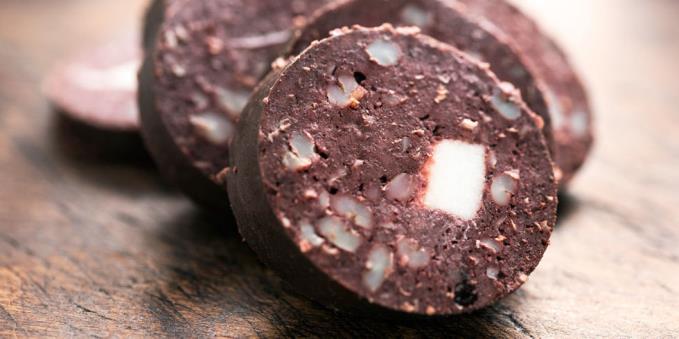
TIGER NUT FLOUR
Tiger nuts are small root vegetables growing in the Mediterranean and Africa which have been eaten for millenia. So no, not nuts, and no, not from tigers. Health food website Superfooduk believe tiger nut flour is a great and healthier alternative to traditional flour, 'a great alternative gluten-free, grain-free flour that can be used in baking or cooking.
'Tiger nuts are also suitable for all types of diets from vegan to paleo to nut-free,' they say. 'Their nutritional value is also beneficial to a healthy diet as tiger nuts are high in fibre, contain calcium, iron, magnesium and potassium, amongst other valuable nutrients.'
For those watching their weight, SuperfoodUK claim tiger nuts are great at ‘supporting the digestive system and weight loss.'
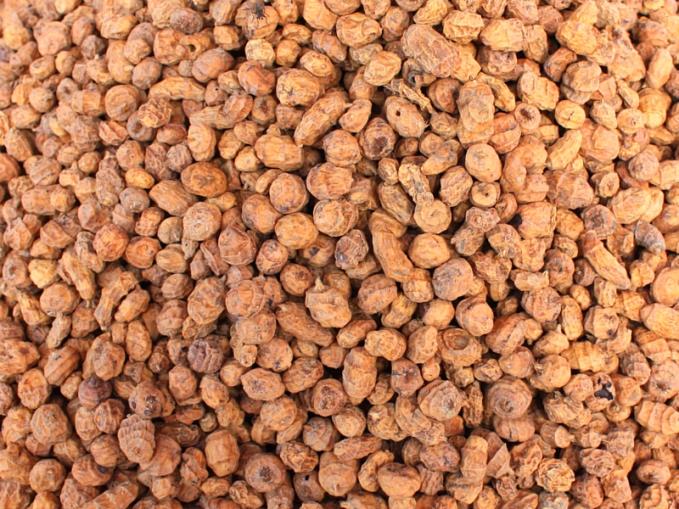
PROBIOTIC WATER
Do you mean those ‘good bacteria’ yogurts which are meant to help, um, settle a lady’s digestive system? Sort of. We’ve seen probiotic yoghurts and probiotic supplements advertised for a number of years (even probiotic chocolate has found a niche in the market), but now, probiotic water is proving popular as another way to naturally help our gut. What is it exactly? Well, its water enhanced with vegan-friendly probiotic cultures made from fermented water kefir.
The naturally-occurring probiotics are said to help your immune system, digestive health and improve your skin. We hear Victoria Secret models have been guzzling the stuff pre-showtime. Sold. Superfooduk say 'tablets are out. Different ways of getting our supplements are in. Food and drink are becoming functional – this trend is an example of how we can get the goodness of water with the added health benefits of probiotics.'

PURPLE FOODS
In an unlikely ode to the late great Prince, our plates are set to become all purple in 2017. Be it purple kale, purple carrots, purple cauliflower, purple broccoli or purple potato, all are said to pack a powerful disease preventing punch. Purple vegetables are rich in anthocyanins, which Superfooduk explains is the antioxidant responsible for their purple colour and has amazing disease fighting properties. “They can soothe inflammation as well as boost immune function. Anthocyanins have also been shown to improve memory and brain function.”
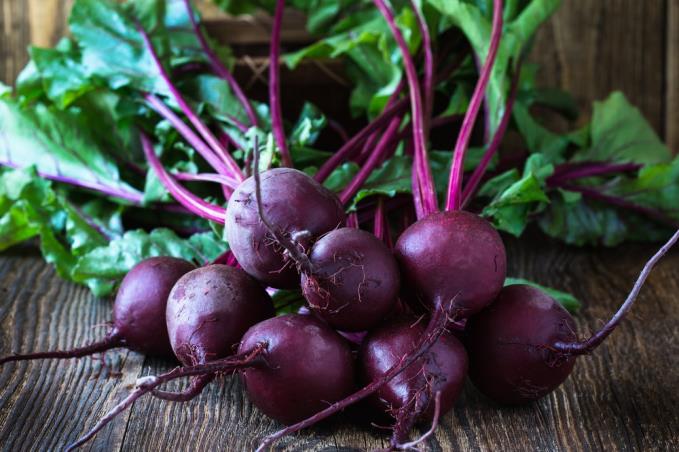
CAULIFLOWER
Cauliflower has come over all hipster. Not content with a quick and simple pan steam, it’s been sexed-up to become 'the new rice' and is being ground into artisan pizza dough. We've heard it hangs out with kale and flat whites in super hip clean-eating cafes these days. It’s understandable, the cruciferous vegetable is brilliantly versatile, as Superfooduk suggests: 'You can pulse raw florets in a food processor to make cauliflower ‘rice’, steam it and blend to make a delicious mash, or just remove the leaves, shove it in the oven and bake it whole. It’s low in carbs and calories and high in fibre, vitamin C, folate and potassium. It also contains compounds called glucosinolates, which are thought to have anti-cancer activity.'
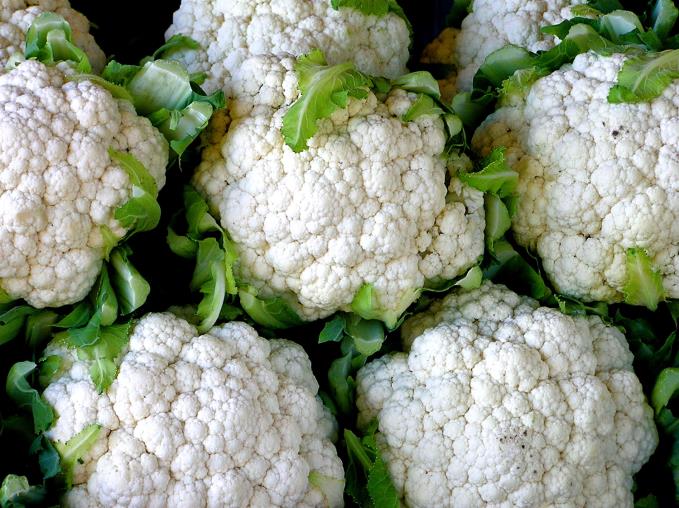
TURMERIC
There are various super-spices with so-called miracle health properties, with turmeric being one of the most powerful available. It contains curcumin, which has potent antioxidant and anti-inflammatory properties. Curcumin has also been shown to help relieve the pain of arthritis, injuries and even dental procedures. Lily Soutter, nutritionist and weight loss expert at lilysoutternutrition.com explains:
“This bright yellow spice is best known for its potent anti-inflammatory benefits. It is the curcumin within turmeric, which has been used to treat inflammatory conditions like arthritis as well as playing a role within cancer prevention and protecting against heart disease."
Are you trying to detox? Soutter says spice up your dishes with turmeric to help the liver function properly. “It stimulates production of bile by the gallbladder that is used by the liver to filter and expel toxins. You can also take turmeric supplements with the active curcumin for similar effect."
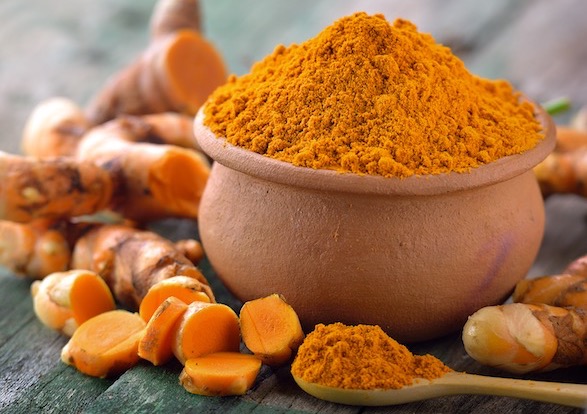
GOAT MEAT
Goat meat is a staple in North African, Caribbean and Middle Eastern cuisine, as well as being the most widely consumed meat in the world (Really? Chicken surely), though it’s considerably less popular here in the UK (give us curry goat and a heap of rice and peas, any day). Lily says 'Whilst goats cheese and even goats milk is pretty popular, it’s hard to find goat’s meat in any of our local supermarkets. Despite this, there has been recent talk that Waitrose and Sainsbury’s may have goat meat available on their shelves by 2017.'
So why goat meat? 'Goat meat is a healthy option. It’s low in fat and higher in protein than some meats and it’s also higher in iron than beef, pork or lamb. What’s more, eating goat meat can be considered an ethical choice too. Currently, goats are farmed primarily for their milk and so – shockingly – most male goats from the goat dairy industry are killed at birth. Creating a market for goat meat will allow the male goats (Billy goats) to live a decent life as they are reared for their meat.'
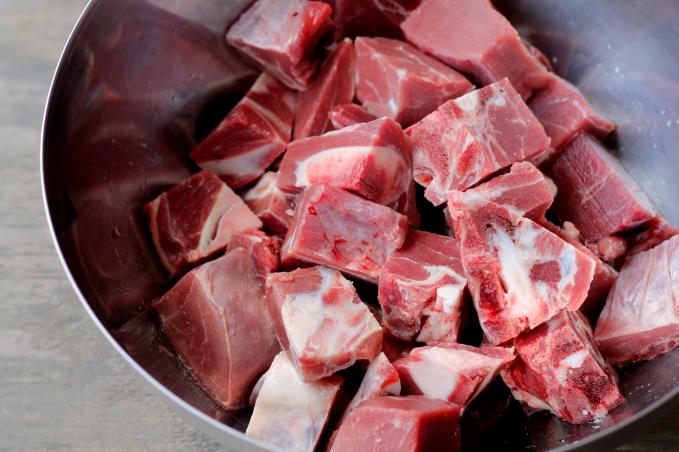
WATERMELON WATER
Ah, so this is what Beyonce meant when she sang 'I've been drinking watermelon'. What works for Beyoncé tends to work for us too. Although we had only just convinced ourselves that coconut water tastes half-decent, so what makes watermelon water any better? Nutritionist Cassandra says, 'Like coconut water, it contains natural electrolyte minerals. It’s especially high in potassium, which has the benefit of keeping our blood pressure in a healthy range. It also contains lycopene – one of the most powerful and protective antioxidants found in plants.' Be warned, though it’s healthy and delicious it is also naturally high in sugar.
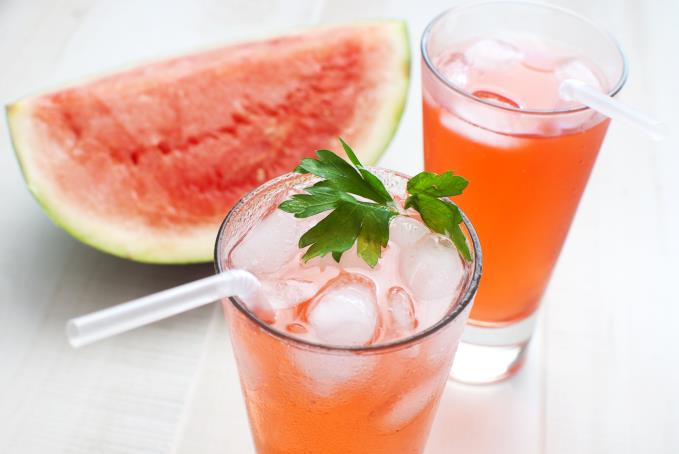
ADAPTOGENS
Er what now? Apparently 'adaptogen’ to become the new health buzzword in 2017. So what is it? As explained by Superfooduk, some plants have 'superpowers that can help our body adapt to and handle stress'. These wonders are called adaptogens and include maca, ginseng, liquorice, ginseng, Rhodiola and moringa. Adaptogenic herbs have been used for centuries in Ayurvedic and Traditional Chinese Medicine to boost energy and increase resilience in the face of stress. Nutritionist Shona Wilkinson explains why they are making a big come back in the new year: 'As their name suggests, adaptogens are herbs that help the body to adapt to the stresses of life. They are tonifying to the body, strengthening it, rebuilding it and nourishing it. Adaptogens are able to 'adapt' their function, specific to what our body needs. They usually have a specific affinity for the adrenals and the endocrine glands, therefore having a positive effect on hormonal balance and the way the body functions under stress.' You can find adaptogens in tablet form, or benefit from these herbs by sipping on maca, ginseng and liquorice teas.
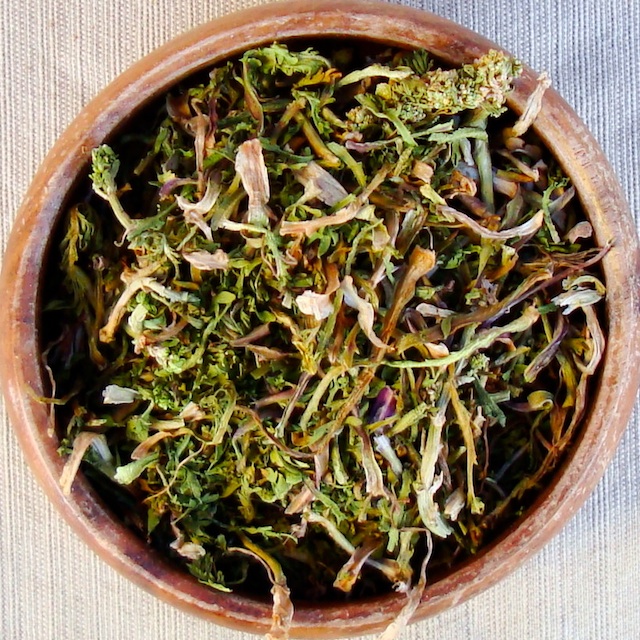
INSECTS
Bit of a wild-card, sure. While many cultures serve up creepy crawlies as everything from light snacks to main meals, there’s no real surprise why they're yet to catch on here. Still, insects have been creeping their way into Western cuisine slowly but surely. UK-based food company, Eat Grub, have been providing millions of people with edible insects and share try-at-home recipes such as grasshopper stir-fries, buffalo worm fried rice and cricket & mushroom stroganoff. Low in fat with a low carbon footprint, there’s both health and ecological benefits, too. Eat Grub say insects contain 'an abundance of nutrients, coupled with their low levels of complex fats', we just need to get rid of our western stigma to benefit.
And now you've chance to get a face full of cricket, as recently opened in Manchester is Favela, a new Northern Quarter Brazilian restaurant which comes with its very own ‘bug menu’.
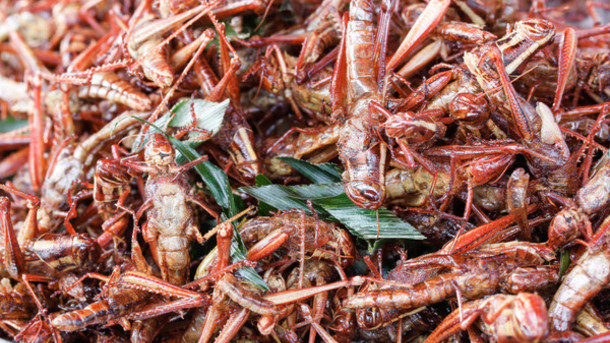
 Powered by Wakelet
Powered by Wakelet













